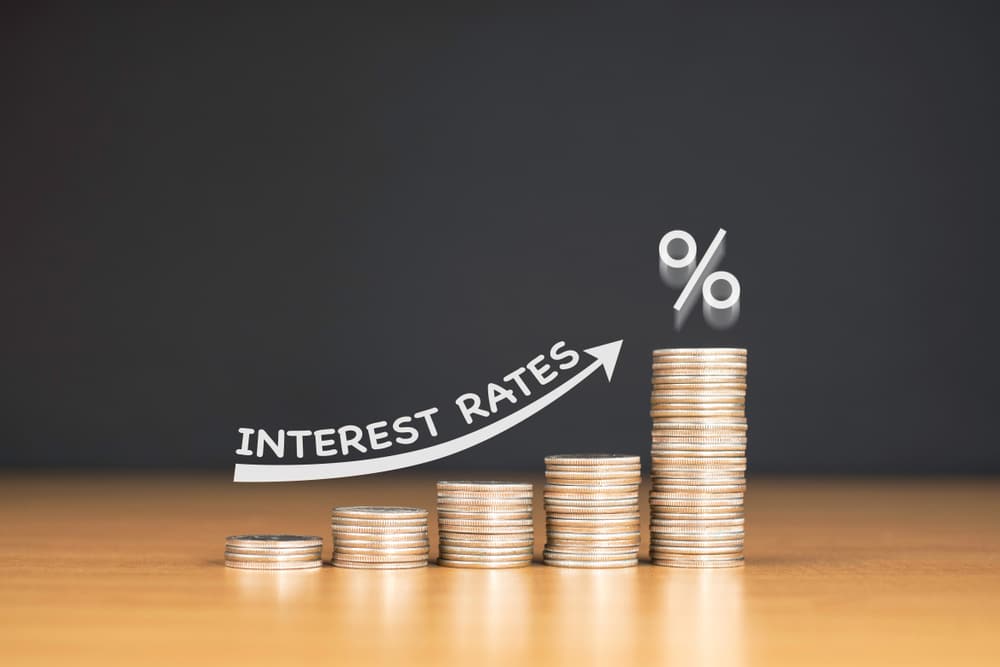Harness Data To Help Guide Property Investor Profits

I’m sure you’ve heard – data is the new currency. It’s the next big thing for business and it will be a catalyst for driving the world forward over the next few years. Learning how to harness the power of data in property investing, will be a secret weapon all investors can use to create more wealth.
So, what is data? It’s information, insights and predictions that property investors can use to help them make smart property purchases.
This could be data around what’s happening in regions in terms of infrastructure and growth. Figures on what type of property is selling well in a particular location. Information on industry or employment opportunities in a city or regional town.
All of this kind of data can give property investors an edge into what, where and when to purchase in order to create wealth.
However, when it comes to data and information, property investors face some challenges. Identifying what these can be will help protect you from making decisions based on fiction and distinguish what is fact.
CHALLENGE #1: DATA ISN’T GOOD OR BAD – IT’S JUST INFORMATION
Letting go of the idea that data has to fall into a good or bad category is a big learning curve for those new to real estate investment.
Remember data is just information coming from different sources. Take it in, and use it as part of a whole knowledge bank you have stored in your mind that will help you gain a greater understanding of the market and investment process as a whole.
In short, don’t give it too much meaning. A report on rises or falls in the market is just one piece of the data puzzle, not the whole picture.
CHALLENGE #2: NOT ALL SOURCES ARE EQUAL
While we’ve been socialised to respect institutions like banks, insurance companies and even some forms of media, most of the sources of data and information aren’t objective.
In simple terms, everyone has an agenda to suit their own purposes and success strategy. While your agenda as a property investor is to eventually pay your loans down and create positive cash flow from your properties, the bank’s agenda is the opposite. Why would they benefit from you paying off your loan?
And even the most well-respected business or finance media has to attract readers, and nothing does that better than a scary headline.
Sources will put data into the market to support their own agendas, another good reason to resist attaching too much meaning to any one piece of information.
CHALLENGE #3: MOST DATA SOURCES HAVE LITTLE RISK
If a financial planner told their clients that property prices were going to plummet by 50 per cent and the smart thing to do was to sell all of their properties, and they were wrong, their clients could sue them.
If the banks, lenders or media say the same thing, they have no tangible responsibility to how people react to that information. So, while the information may have been put in the public arena with the best intentions, if it’s wrong, there’s no fallout for the source.
The challenge here is to once again take all data as small insights into what is a very big business with a lot of moving parts. Don’t be scared into an over-reaction, or worse yet a paralysis of any decision making, by one piece of data.
Smart property investors seek information from property experts with years of experience and education who, incidentally, have the same agenda as them – to use property as a way to create wealth.
MAKE DATA DRIVEN DECISIONS CORRECTLY
The key here is to make data driven decisions correctly. When you can read verified information accurately, it has the potential to help you tremendously.
It can inform much if your investing strategy and lead you to the best properties to buy, in right locations and for the right place. It can guide you in making key decisions such as which property manager to go with, what rent to charge and even which banks to work with.
To learn more about how you can better utilise data when investing in real estate, join us for our free property investing seminar.
Limited spots are available so book here now.
Recent Articles
How To Prepare for a Rise in Interest Rates
Smart property investors know that it’s dangerous to get too comfortable. Real estate is an ever-changing thing. Markets go up, down and plateau – and so do interest rates. The question is, how prepared are you for a Rise in Interest Rates? The key is being ready to use these strategies.
3 Ways a Property Investor Will LOSE Money!
There are many ways you can win big by investing in real estate. Equally, if you lose sight of the basics, you’ll end up losing something much worse – money! No one sets out on their property journey to go backwards financially, so take note of these three common mistakes that investors often make, because if you don’t, it may cost you in the long run. Here are 3 ways an investor can lose money…
An Investor’s Guide to Multi-Income Properties
When it comes to building a booming property portfolio, diversity is key! There are four primary multi-income types that Australian investors can buy at the moment.
Property Cash Flow Basics For Creating Passive Income
Buying real estate is similar to running a business – good performance is derived from your ability to generate cash flow. For a property investor, this means eventually living off the passive income that your real estate generates. Therefore, it is especially important that you map out your ability to build a portfolio that will deliberately achieve this level of success from the get-go.
How Property Investors Can Reduce Tax Down To Zero!
Those who own real estate are subject to many, different kinds of tax. Some tax is unavoidable. Other kinds of tax are legally, 100% avoidable – or at least able to be reduced substantially. With the Victorian government recently announcing a rise in the land tax threshold it’s even more important that property investors know where they can and should minimise the tax they pay.
A Property Investor’s Guide To Depreciation
Every smart property investor knows that to create and maintain a portfolio, we need to have good cash flow. One of the ways we can support this is by using depreciation and tax. But, just like equity, depreciation only works for us if we know how to access and then leverage it.
A Property Investors Guide To Guaranteed Rental Increases
Rent is your weekly or monthly incomes from your property. And it’s an income you don’t work for. It’s the absolute key to good cash flow and passive income, so it’s essential you are able to keep raising your rents at regular intervals. But, what makes it possible for property investors to do this?
The Only Time You Should Sell An Investment Property
The golden rule of property investing is to buy well and NEVER SELL. However, there are always exceptions to the rule… Firstly, let’s look at why you would keep an investment property? If you buy a great piece of real estate, in the right location, it will always create a passive income for you, so there will be no reason to sell it.
House vs Apartment – Which Is Better for Capital Growth?
Many property investors favour one type of property – either apartments or houses. While there are pros and cons to both, which we will discuss here, one of the often forgotten advantages of houses is the investment you’re making not only in the bricks, but also in the land. Land value in itself increases over time, and investment in a piece of land also provides opportunity to renovate, subdivide and develop, all of which lead to greater capital growth.












